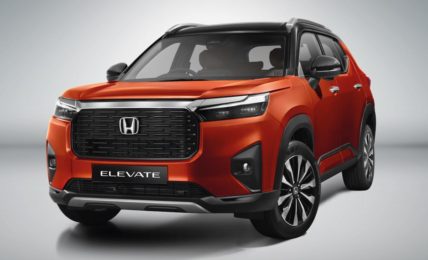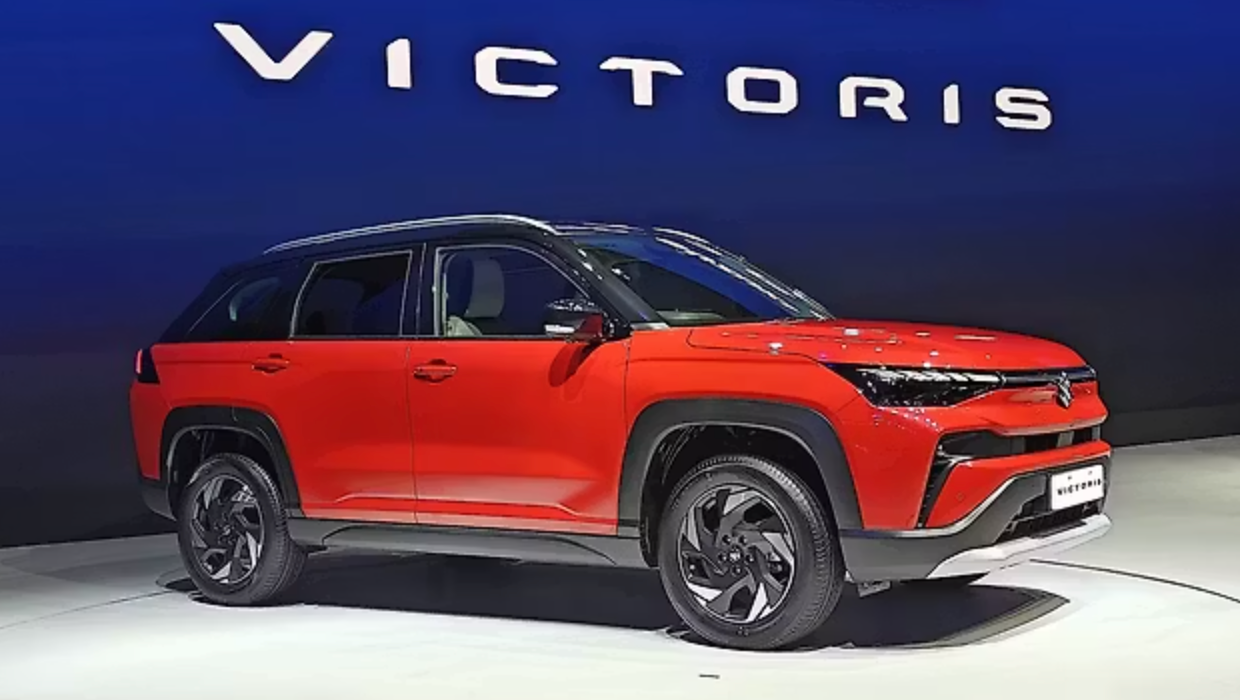The made-in-India Honda Elevate, which is also sold in Japan as the Honda WR-V, has recently made headlines for all the right reasons. It earned a stellar 5-star safety rating in the Japan New Car Assessment Program (JNCAP), cementing its place among the safest compact SUVs in its segment. This milestone achievement reinforces Honda’s global commitment to safety and design excellence while showcasing India’s manufacturing prowess. Here’s a deep dive into what the tests revealed, what safety features the Elevate offers, and how it compares in the competitive compact SUV market.

Honda Elevate Achieves Full 5-Star Rating in JNCAP
The JNCAP crash tests conducted in Japan are among the most rigorous safety evaluations globally. The made-in-India Honda Elevate was put through a battery of tests to evaluate its structural integrity, occupant protection, pedestrian safety, and advanced driver assistance systems. Let’s explore the crash test scores in detail:
Breakdown of Safety Scores
| Safety Parameters | Score | Percentage |
|---|---|---|
| Overall Safety Performance | 176.23 / 193.8 | 90% |
| Preventive Safety Performance | 82.22 / 85.8 | 95% |
| Collision Safety Performance | 86.01 / 100 | 86% |
| Automatic Emergency Call System | 8 / 8 | 100% |
These numbers reflect the car’s well-rounded capability in various safety scenarios.
Highlights from the JNCAP Crash Test Results
Full Frontal Collision
The Elevate earned a Level 5 rating during the full frontal crash test, which simulates a head-on collision at 50 km/h. This test is critical for evaluating how the car’s structure protects occupants in a direct impact.
Offset Frontal Collision
In the offset frontal collision test, only a portion of the vehicle’s front impacts another surface, replicating a common type of road accident. The Elevate scored 22.42 out of 24 for occupant protection. However, it lost a few points for the impact it could have on another vehicle, scoring -1.23 out of 5 under partner vehicle protection.
Side Impact Test
A side impact test simulates a vehicle being struck from the side by another moving vehicle. The Honda Elevate passed this test with flying colors and received a Level 5 rating due to its robust structure and effective deployment of side airbags.
Rear-End Collision
In tests simulating rear-end collisions, both the driver and passenger seats scored a Level 4 rating. While not perfect, it still ensures reasonable whiplash protection and seat design integrity.
Pedestrian Safety
The Elevate also performed well in pedestrian protection tests, scoring a Level 4 for head impact mitigation and a Level 5 for leg protection, helping to reduce injury severity in unfortunate encounters with pedestrians.
Advanced Driver Assistance Systems (ADAS)
In JNCAP’s ADAS evaluation, the Honda Elevate scored a perfect Level 5 in Autonomous Emergency Braking (AEB). It was tested at various speeds ranging from 20 km/h to 60 km/h and also evaluated for lane-keeping functionality. The AEB system successfully detected and avoided collisions with moving dummies mimicking pedestrians, bicycles, and other vehicles.
Safety Features in the Honda Elevate (Japan-Spec)
The Japan-spec WR-V (Honda Elevate) comes loaded with a comprehensive list of safety features:
- Six airbags (standard across variants)
- Electronic Stability Control (ESC)
- Hill Start Assist
- ISOFIX child seat anchorages
- Lane Watch Camera
- Rear Parking Sensors with Camera
- Advanced Driver Assistance Systems (ADAS):
- Adaptive Cruise Control
- Lane Keep Assist
- Automatic Emergency Braking
These features not only elevate the SUV’s safety quotient but also enhance overall driving confidence.
Price and Market Positioning in India
In India, the Honda Elevate is priced between Rs 11.91 lakh to Rs 16.73 lakh (ex-showroom). This makes it one of the more competitively priced compact SUVs with robust safety credentials. Despite being designed and manufactured in India, it maintains global safety benchmarks, adding to its value proposition.
Rivals in the Indian Market
The Honda Elevate competes in a densely packed segment and goes head-to-head with:
- Maruti Grand Vitara
- Hyundai Creta
- Tata Curvv
- Kia Seltos
- Toyota Urban Cruiser Hyryder
- Skoda Kushaq
- Citroën Basalt
- MG Astor
- Volkswagen Taigun
Despite the fierce competition, the Elevate’s 5-star safety rating could give it a strong advantage for buyers prioritizing safety.
Frequently Asked Questions:
Q: Is the Honda Elevate crash-tested in India?
A: While the Indian model hasn’t been rated by Global NCAP yet, the Japan-spec Honda WR-V (manufactured in India) has received a 5-star JNCAP rating.
Q: What is JNCAP?
A: JNCAP stands for Japan New Car Assessment Program. It’s a safety evaluation program that rigorously tests vehicle crashworthiness and active safety features.
Q: Does the Indian version of Honda Elevate offer ADAS?
A: Yes, the Indian-spec Honda Elevate also features Honda Sensing ADAS tech in top variants, including lane keep assist, adaptive cruise control, and AEB.
Q: How many airbags does the Honda Elevate have?
A: It comes with six airbags as standard across all variants in Japan and in top trims in India.
Q: Is the Honda Elevate a safe car for families?
A: Yes, with its 5-star safety rating, multiple airbags, and ADAS features, the Elevate is an excellent family SUV in terms of safety.




